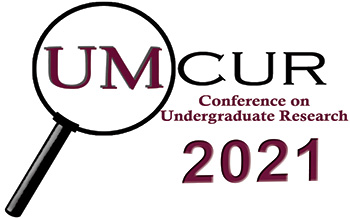Project Type
Presentation
Faculty Mentor’s Full Name
Elena Bigart
Faculty Mentor’s Department
Society and Conservation
Abstract / Artist's Statement
As people are moving and expanding into more rural and unoccupied areas, the number of human-wildlife interactions have increased. Public attitudes toward wildlife are essential for the safety of both, as well as maintaining a healthy ecosystem. Lack of awareness and education surrounding wildlife results in relationships with wildlife becoming disconnected, dangerous, and harmful to both native wildlife species and people. We believe through proper education, these conflicts can be mitigated and prevented. With our literature review, we learned that starting education about wildlife at an early age is important. While some resources for teachers exist, they do not allow for students to interact with the material, nor feel empowered by it. Through the interviews that we conducted, we gained a greater understanding as to which subjects should be included in our curriculum on our website, where the current gaps are in education with wildlife and related topics, and what resources would be helpful to allow students to understand this material better. We interviewed a variety of people of different backgrounds, including parents, teachers, wildlife educators, scientists, and international scholars, in order to understand what to include in our created website. With this, we hope to educate children about the natural world and how they can interact with it, as well as develop a love and respect for nature and wildlife. This knowledge will give kids a head start in the science world and help them develop skills such as teamwork, problem-solving, reasoning, critical thinking, and collaborative skills when they are at their most impressionable age. This will be helpful for wildlife, and it will be vital in furthering education and developing skills they will take into their adult life.
Category
Franke Global Leadership Initiative
REWILDING CHILDREN: Creating Digital Tools for K-5 Wildlife Education
As people are moving and expanding into more rural and unoccupied areas, the number of human-wildlife interactions have increased. Public attitudes toward wildlife are essential for the safety of both, as well as maintaining a healthy ecosystem. Lack of awareness and education surrounding wildlife results in relationships with wildlife becoming disconnected, dangerous, and harmful to both native wildlife species and people. We believe through proper education, these conflicts can be mitigated and prevented. With our literature review, we learned that starting education about wildlife at an early age is important. While some resources for teachers exist, they do not allow for students to interact with the material, nor feel empowered by it. Through the interviews that we conducted, we gained a greater understanding as to which subjects should be included in our curriculum on our website, where the current gaps are in education with wildlife and related topics, and what resources would be helpful to allow students to understand this material better. We interviewed a variety of people of different backgrounds, including parents, teachers, wildlife educators, scientists, and international scholars, in order to understand what to include in our created website. With this, we hope to educate children about the natural world and how they can interact with it, as well as develop a love and respect for nature and wildlife. This knowledge will give kids a head start in the science world and help them develop skills such as teamwork, problem-solving, reasoning, critical thinking, and collaborative skills when they are at their most impressionable age. This will be helpful for wildlife, and it will be vital in furthering education and developing skills they will take into their adult life.
